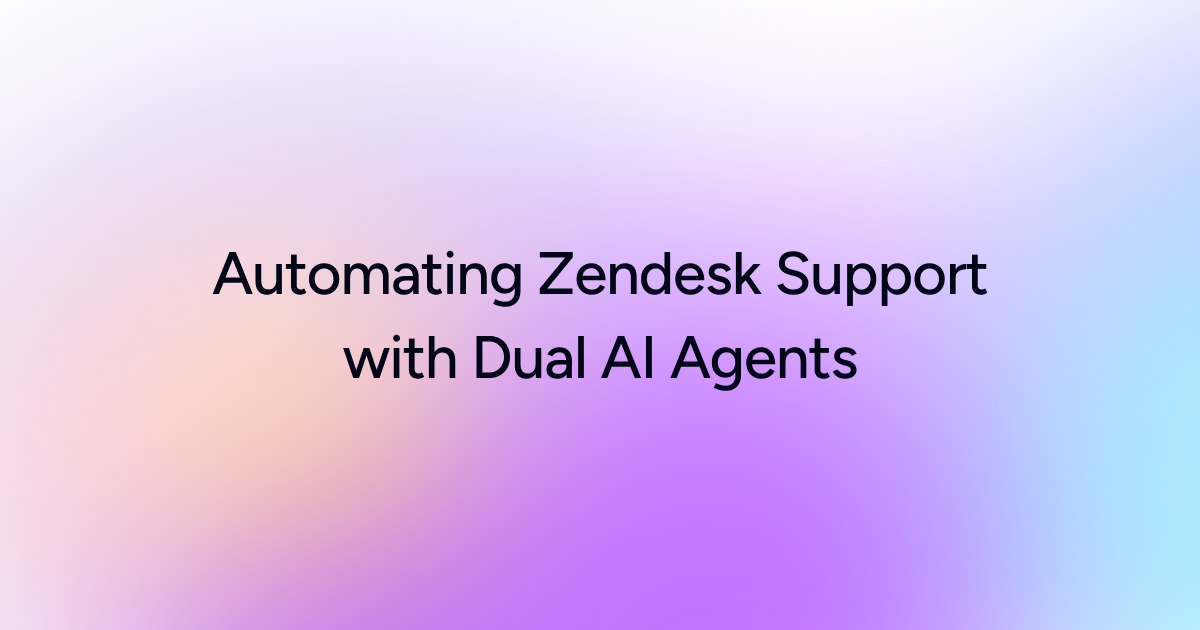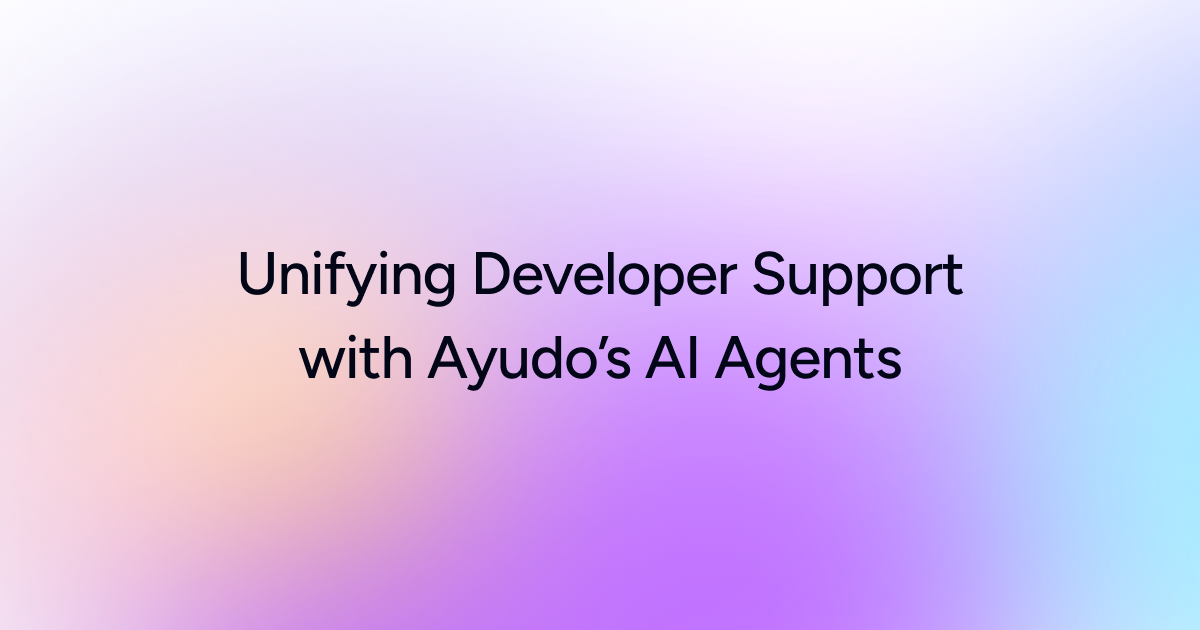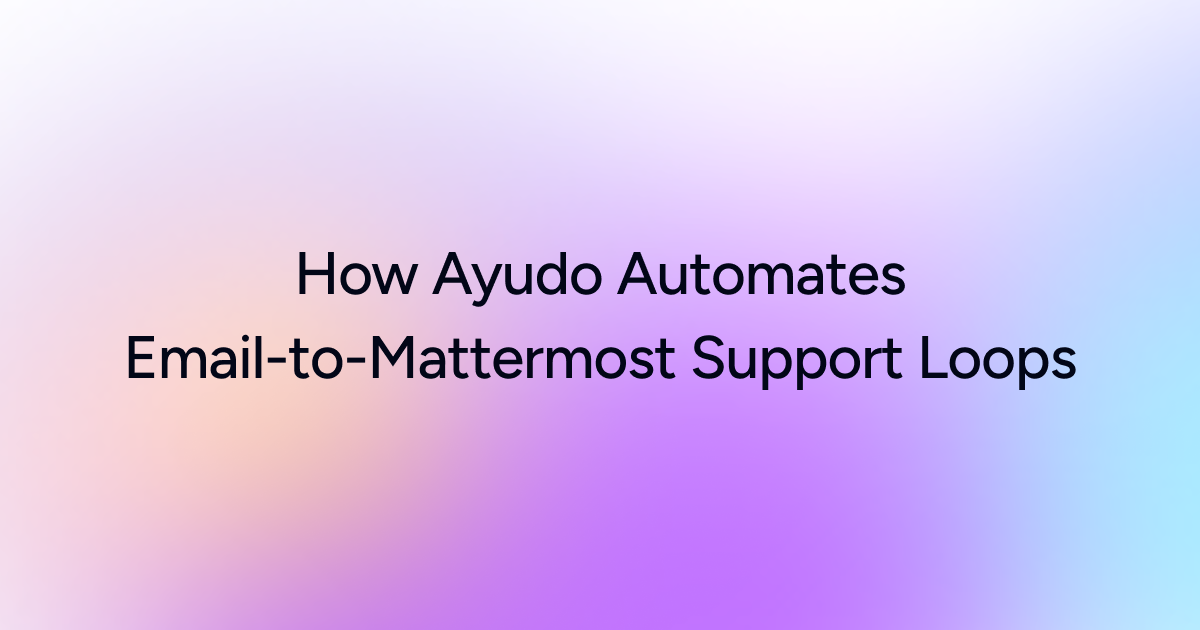
In fast-growing B2B SaaS environments, customer support often becomes a balancing act — maintaining enterprise-grade service quality while scaling across hundreds of clients and complex integrations.
For one of the world’s leading AI HR platforms based in Asia, this challenge was beginning to show cracks.
The platform — known for helping organizations listen to their employees through AI-driven surveys and sentiment analysis — was scaling fast. Their customers (large HR teams and enterprises) often reached out through email or in-product chat, both routed via Zendesk.
Behind the scenes, their internal teams collaborated over Slack whenever a support agent needed engineering or infrastructure inputs.
But there was a gap: no AI assistance, no automation, and no context sharing between tools. Every query had to be triaged manually, every escalation tracked by hand, and every response crafted from scratch.
The problem: manual handoffs and lost context
The customer support flow looked like this:
- Customer raises an issue via chat or email.
- A Zendesk ticket is created.
- If the query required technical help, the support agent manually posted it in a Slack channel.
- The engineering team debugged using tools like AWS, Datadog, or Sentry.
- Once the issue was resolved, the agent went back to Zendesk to update the customer.
It worked — but it was slow, fragmented, and dependent on constant human vigilance. There was no automation to handle simple, repetitive issues or to share context between Zendesk and Slack.
The Ayudo approach: AI agents layered on top of Zendesk
Instead of migrating systems or disrupting ongoing workflows, Ayudo integrated directly on top of Zendesk and Slack.
No migration. No change management. Just automation — seamlessly embedded into their existing stack.
Step 1: L0 AI Agent on Zendesk
The first layer was a Level 0 (L0) AI Agent that operates directly inside Zendesk.
This agent automatically responds to incoming customer emails and chats by:
- Accessing CRM data from HubSpot for customer profiles.
- Pulling billing and subscription details from Stripe.
- Referring to internal documentation and past tickets.
When confident, it replies instantly to the customer — resolving routine onboarding questions, billing queries, and feature requests in real time.
Step 2: Slack Escalation with L1 AI Agent
When the issue requires deeper technical insight, the Zendesk AI agent automatically creates a child ticket and escalates it to a Slack channel used by the engineering and escalation teams.
Here, a second AI agent — the Slack AI Agent — takes over.
This agent is connected to internal developer systems such as AWS, Datadog, and Sentry, pulling relevant logs and error details into the conversation thread.
The Slack AI agent can even ask clarifying questions or confirm whether the issue has been fixed — ensuring that no Slack message ends without resolution.
Once the internal team confirms the fix, the AI agent automatically pushes the resolution back to Zendesk, updating the customer thread and closing the loop.
Two agents, one memory
Both AI agents — Zendesk (customer-facing) and Slack (developer-facing) — share the same memory and context layer inside Ayudo.
This means:
- The customer gets consistent, accurate responses.
- Engineers see complete context without asking redundant questions.
- Support agents no longer have to toggle between tools or rewrite updates.
The harmony between these two agents eliminates repetitive work, reduces response times, and ensures a single source of truth across the support stack.
The impact: automation without migration
For this AI HR platform, the biggest win was zero disruption.
- No migration from Zendesk. Their existing support and chat flows remained intact.
- No new dashboards. Support agents still worked entirely within Zendesk.
- No loss of analytics. All agent activity, deflection, and productivity metrics were tracked through Ayudo’s analytics dashboard.
They simply layered intelligence on top of what already worked — accelerating performance without rearchitecting their support stack.
The benefits in numbers (within the first few weeks)
- 40–50% faster first-response time on chat and email tickets.
- 50%+ ticket deflection achieved through automated replies.
- Zero missed escalations — Slack agents ensured continuous context syncing.
Improved CSAT and resolution accuracy through consistent multi-agent responses.
The future of hybrid support automation
In B2B SaaS, especially in enterprise HR and AI platforms, support automation is no longer about replacing humans — it’s about removing friction between systems.
Ayudo’s architecture sits on top of existing platforms like Zendesk, Slack, Stripe, and HubSpot — orchestrating them through AI agents that talk to each other, share memory, and learn over time.
It’s the cleanest path to transforming support operations: no replatforming, no re-training, no downtime. Just smarter workflows.
Getting started
If your team relies on Zendesk or other legacy ticketing systems and wants to add AI-driven automation — without migrations or disruptions — Ayudo can layer intelligent agents directly on top of your stack.
From instant replies to automated Slack escalations, Ayudo helps you modernize support without changing how your teams work.
Request a demo to see how Ayudo.ai can power AI agents that truly work in harmony.









